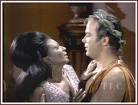What is the best life?
The first thing to do in class is a simulation called Humanus, which has been edited by anonymous for just this purpose. It requires a tape deck and some good will. It comes from the same company as Starpower and Bafá Bafá, but is no longer mentioned on the web site http://www.stsintl.com/schools-charities/star_power.html
Participants make decisions about the kind of life they want to live in the circumstances described on the tape. It takes about twenty minutes and leads to a discussion about why those choices, and different groups in the room make different choices for different reason, or even the same choice for different reasons. It throws up some themes that stay with us throughout the course.
We start at the end with Aristotle’s account of the best regime in which the best life can be lived. At times in the past I have included Aristotle’s Ethics in whole or part to show what this best life would be like, but not this time. Before reading and discussing Aristotle, however, in the first class students complete a short survey: 1. What is the best life? 2. What is the best regime? 3. What would you personally do living the best life in the best regime? What did they say?
1. What is the best life? They say it is a life of material plenty. And that is about all they say. Not much to say about what happens once we have a lot more. That is why I added question (3).
2. What is the best regime? Democracy. Hmm. If it is not working we need more of it, seems to be the attitude.
3. What would you personally do living the best life in the best regime? Here there is a little more substance. There are comments about community with family and friends. See, Aristotle is right.
It is a quick exercise with little time for deep thinking about it leads us nicely into Aristotle: the Maslow hierarchy provides a framework. Wikipedia http://en.wikipedia.org/wiki/Maslow_hierarchy_of_needs
The basic needs are satisfied so that we can live the life of the mind in the company of others who we respect. For Aristotle we are two beings in one. Below the waist we are a beast of nature, while in the head were aspire to the divine. (There is an echo of this division in Jean Jacques Rousseau two thousand years later.) To live the life of the mind we must insulate ourselves from nature, including the nature that is blow the waist. Star Trek (Original Series) had an episode name “Plato’s step children” that portrayed a group of, well, maybe Aristotle’s step children.
From a fan site for Star Trek,
Synopsis: “The Enterprise arrives on a mercy mission to help an aristocratic race with telekinetic abilities, which they use to manipulate the crew in an effort to force them to leave Dr. McCoy behind so he can take care of them. Eventually they force Kirk and Uhura to engage in television’s first interracial kiss, but Kirk discovers the source of their powers and fights back with the help of one of the race’s own social misfits.” The misfits are those who are not Plato’s step children.
This episode is famous, even beyond the pale of Trekkies because it featured the first interracial kiss on broadcast television in the United States in 1969, between Uhura and Kirk, that is was against the will of both did not diminish the shock and reaction at the time. The malicious Step Children practices a kind of body control with the power of their minds. (For those who wonder why Star Trek was cancelled, this might be a factor.)

http://sttos.epguides.info/?ID=422
The best regime? A democracy of the voice, but not all that voting and law-making.
I start at the end because the few earlier times when I taught this set of works, the end of semester exhaustion meant we passed over Aristotle very lightly. Not something I liked but it happens. I have published a couple of pieces of Aristotle and I find studying his texts exhilarating; the sense of contact with his mind over the millennia is electric sometimes.
